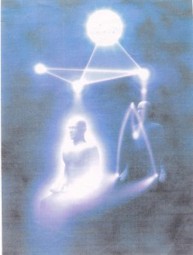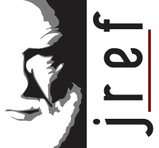
By Sharon Hill
As with many independent web sites, Doubtful News relies on search results from Google to send traffic to the site. Many skeptical activism sites are encouraged to use best practices for search engine optimization in order to gain readers looking for more information on a particular topic. The importance of searches to provide a wide-ranging view of Internet information is why news yesterday regarding manipulation of search results was worrisome.
Blogger Esther Rockett brought to light that Universal Medicine, a controversial unit promoting "Esoteric Medicine" headed by Serge Benhayon (not a licensed physician), hired a company to address potential Internet defamation claims. This is a common activity for alt med practitioners, celebrity psychics, and those pushing dubious claims. They will make attempts to silence criticism by issuing takedown notices to the site's internet service provider, filing copyright infringement claims, threatening libel action, and, now, petitioning Google to remove specific URLs (internet addresses) from Google search results.
As with many independent web sites, Doubtful News relies on search results from Google to send traffic to the site. Many skeptical activism sites are encouraged to use best practices for search engine optimization in order to gain readers looking for more information on a particular topic. The importance of searches to provide a wide-ranging view of Internet information is why news yesterday regarding manipulation of search results was worrisome.
Blogger Esther Rockett brought to light that Universal Medicine, a controversial unit promoting "Esoteric Medicine" headed by Serge Benhayon (not a licensed physician), hired a company to address potential Internet defamation claims. This is a common activity for alt med practitioners, celebrity psychics, and those pushing dubious claims. They will make attempts to silence criticism by issuing takedown notices to the site's internet service provider, filing copyright infringement claims, threatening libel action, and, now, petitioning Google to remove specific URLs (internet addresses) from Google search results.
Rockett informs us that this is a problem in Australia and New Zealand. For the past two years, the firm representing Universal Medicine (UM), Phoenix Global (both entities are in Australia), has filed complaints to Google to block URLs from several sites they deem "defamatory". These sites include Doubtful News, Pharyngula (on Free Thought Blogs), Museum of Hoaxes, the JREF forum, Reasonable Hank, and, unsurprisingly, several sites that have a sole purpose to expose objectionable practices of Universal Medicine (UM) and Benhayon. Rockett's post here contains a list of all the URLs that were successfully blocked by this complaint process.
UM was likely primarily interested in minimizing the unflattering press reports they received from large news outlets in Australia alleging that the organization was operating like a religious "cult".
Benhayon denies the claims that UM is a cult. But the fact that most of his followers are women and that he promotes such therapies as "esoteric breast massage" has garnered him scrutiny and sharp criticism. The tenets of Universal Medicine include diet, sleep, exercise and music recommendations so that the followers to avoid "negative energy". The media pushed that they also sell merchandise and encourage participation in retreats in workshops. All of these URLs were successfully blocked from search results for "Serge Benhayon".
You can see their "esoteric" healing therapies outlined on the UM website.
I'm not clear that all of these claims in the media were well-documented or that the UM establishment was breaking any laws, though they were under investigation by Australian consumer administrations. UM has not made any actual legal threats to the media outlets that reported these stories.
Rockett notes that UM has not succeeded with a number of their complaints – "probably the majority" – and none in 2014. Does this mean Google has considered the criticism on various websites as "fair" or did the information just not reach the threshold of removal? From my experience in dealing with Google before with regards to inclusion on Google News, their rules for inclusion/exclusion seem subjective and the requestor is not given a clear indication of why any request was approved or rejected. It may not be a fair process but I don't pay for the service, it's not publicly funded, and I can only demand so much of it. To have the ability to remove URLs is not a bad idea if you are being harassed where obviously false and discriminatory information is being circulated about you. Psychic Sally Morgan had her legal team contact websites and media outlets to remove all stories about her alleged cheating after she won a case associated with the Daily Mail. While we may not like the ruling, it's law.
Chilling Effects website works to expose parties that deliberately abuse Internet rules for their own agenda. They have posted the particular complaint from Phoenix Global from January 2013 . Notice the complainants cite laws but do not go so far as to prove that the URL's offending content violates these laws.
Google URL removal is a low-cost, low-risk tool to manage your online reputation. Google removes URLs by request without a court order in Australia and New Zealand. It is not clear if they are allowed to do so in the U.S. but since the results were coming up on the Google sites from those countries, regardless that they were not located in those countries, the URLs were blocked. Perhaps Google was just being conservative in their decisions to block, but this type of blocking action, with no easy means of dispute process or reversal, is ripe for abuse. Instead of addressing the skeptical critique directly, this is a backdoor way of shutting it down. It is concerning that this may become a more prominent means of squashing valid criticism from those whose goals are to inform the public to be wary of extraordinary claims.
Postscript: The blocking may only apply to the Google Australia portal. I did a search on https://www.google.com.au for “Serge Benhayon” and saw this message on page two: “In response to a legal request submitted to Google, we have removed 2 result(s) from this page. If you wish, you may read more about the request at ChillingEffects.org.”
UM was likely primarily interested in minimizing the unflattering press reports they received from large news outlets in Australia alleging that the organization was operating like a religious "cult".
- The Therapeutic Goods Administration in Australia investigated their sale of supplements.
- UM was reported to set up a tax exempt charity, sought donations and wished to open a school to teach his form of healing.
- The Courier Mail reported claims that families have been broken up by participating in the former tennis coach's lifestyle recommendations.
- The Sydney Morning Herald reported that his followers call him "The One" and that they believed he was the reincarnation of Leonardo da Vinci. Their portrayal of his spiritual healing business elevated him as a guru promoting fringe metaphysical (and ridiculous) treatments like chakra-puncture. There were even allegations that he told members he could cure cancer.
Benhayon denies the claims that UM is a cult. But the fact that most of his followers are women and that he promotes such therapies as "esoteric breast massage" has garnered him scrutiny and sharp criticism. The tenets of Universal Medicine include diet, sleep, exercise and music recommendations so that the followers to avoid "negative energy". The media pushed that they also sell merchandise and encourage participation in retreats in workshops. All of these URLs were successfully blocked from search results for "Serge Benhayon".
You can see their "esoteric" healing therapies outlined on the UM website.
I'm not clear that all of these claims in the media were well-documented or that the UM establishment was breaking any laws, though they were under investigation by Australian consumer administrations. UM has not made any actual legal threats to the media outlets that reported these stories.
Rockett notes that UM has not succeeded with a number of their complaints – "probably the majority" – and none in 2014. Does this mean Google has considered the criticism on various websites as "fair" or did the information just not reach the threshold of removal? From my experience in dealing with Google before with regards to inclusion on Google News, their rules for inclusion/exclusion seem subjective and the requestor is not given a clear indication of why any request was approved or rejected. It may not be a fair process but I don't pay for the service, it's not publicly funded, and I can only demand so much of it. To have the ability to remove URLs is not a bad idea if you are being harassed where obviously false and discriminatory information is being circulated about you. Psychic Sally Morgan had her legal team contact websites and media outlets to remove all stories about her alleged cheating after she won a case associated with the Daily Mail. While we may not like the ruling, it's law.
Chilling Effects website works to expose parties that deliberately abuse Internet rules for their own agenda. They have posted the particular complaint from Phoenix Global from January 2013 . Notice the complainants cite laws but do not go so far as to prove that the URL's offending content violates these laws.
Google URL removal is a low-cost, low-risk tool to manage your online reputation. Google removes URLs by request without a court order in Australia and New Zealand. It is not clear if they are allowed to do so in the U.S. but since the results were coming up on the Google sites from those countries, regardless that they were not located in those countries, the URLs were blocked. Perhaps Google was just being conservative in their decisions to block, but this type of blocking action, with no easy means of dispute process or reversal, is ripe for abuse. Instead of addressing the skeptical critique directly, this is a backdoor way of shutting it down. It is concerning that this may become a more prominent means of squashing valid criticism from those whose goals are to inform the public to be wary of extraordinary claims.
Postscript: The blocking may only apply to the Google Australia portal. I did a search on https://www.google.com.au for “Serge Benhayon” and saw this message on page two: “In response to a legal request submitted to Google, we have removed 2 result(s) from this page. If you wish, you may read more about the request at ChillingEffects.org.”
Sharon Hill, P.G., EdM, is a geologist with a specialty in science and society and public outreach for science. She is the creator and editor of the unique critical thinking blog DoubtfulNews.com and researches, writes and speaks about the paranormal, monsters and natural phenomena for various publications including Skeptical Inquirer and Fortean Times. Follow her on Twitter @idoubtit.

